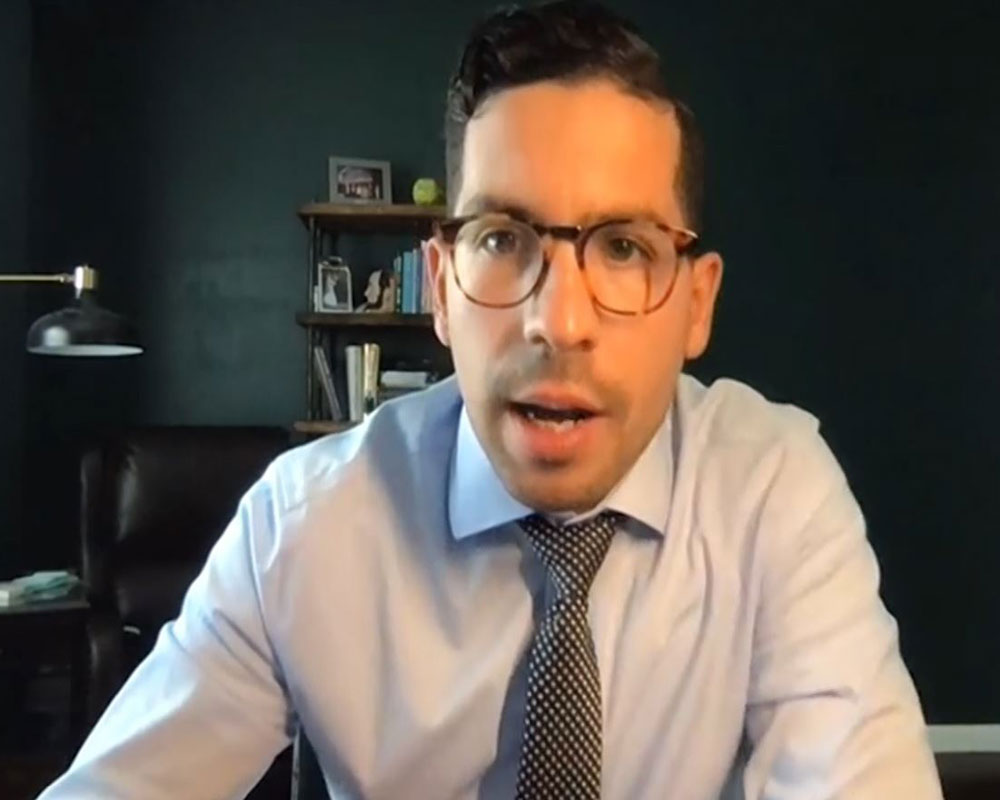Haverhill Rep. Andy X. Vargas is co-chairing the new state Commission on Structural Racism in the Massachusetts Parole Process.
Vargas, appointed by House Speaker Ronald Mariano, opened last week’s first meeting by quoting from the Aspen Institute’s definition of “structural racism.”
“‘Structural racism is not something a few people or institutions choose to practice. Instead, it has been a feature of the social, economic and political system in which we all exist.’ In other words, we’re not picking on the parole process here. Every single institution across our criminal justice system, our economic system, our financing system, our housing system has some element of structural racism embedded in it,” he said.
Created as part of the landmark police reform law Gov. Charlie Baker signed Dec. 31, the 13-member commission is tasked with identifying any disparities affecting people of color in the parole process and suggesting ways to close those gaps. Vargas, who is joined by Senate Co-Chair Jamie Eldridge, said the panel aims to produce “concrete recommendations that will make Massachusetts better for all.”
For the thousands of Bay State inmates released early every year to complete their sentences in the community, conditions such as regular travel to mandatory meetings carry financial obligations that can be difficult to meet, experts and advocates said.
Ronald Corbett, a former executive director of the state Supreme Judicial Court and former acting commissioner of the Massachusetts Probation Department, said the community corrections structure “makes it very difficult for people in financial distress to stay in compliance,” citing a book by Harvard and Princeton researchers.
“They’re just too busy trying to get day-to-day requirements met—a place to stay, something to eat, something of that nature—and there’s no bandwidth left to deal with what can sometimes be, in my opinion, an onerous burden, an unfair load of requirements that you have to comply with to stay on the street,” Corbett said.
Corbett, who is Baker’s appointee to the Commission, named parole conditions and how an individual’s background affects them as “potential flashpoints” the panel will need to resolve. Another, he said, is in the revocation process, calling for a greater understanding of how the state Parole Board decides when to order a parolee back to prison or jail.
Another priority for the commission will be getting a clearer glimpse into how individual Parole Board hearings play out, an area that advocates say is currently shrouded in secrecy.
Patricia Garin, an attorney and Prisoners’ Legal Services of Massachusetts board president, said Parole Board regulations bar lawyers from appearing at parole hearings except those involving a life sentence.
“If you’re not so incredibly disabled that you get an attorney, you do your parole hearing by yourself and the hearings are not recorded,” Garin explained. “The non-lifer hearings are a big black hole. None of us know what happens at them. There’s been court hearings where someone will sue for not being allowed parole, and a judge will say, ‘Where’s the hearing? Where’s the hearing?’ and the poor prisoner says, ‘They don’t record it. They don’t make any record of it.’ “
“We could get a good view from the people who are at the board, because there’s a lot of people who are there all the time on lifer hearings, but there’s no one who knows what goes on at the vast majority of hearings, which are the non-lifers,” Garin added.
Several commission members said that they also want to see more detailed information about how parole system decisions and interactions break down by demographic.
The state Department of Correction publishes an annual report indicating parole releases by race and ethnicity. In every year from 2015 to 2019, more than half of inmates granted parole were white, while about 20 percent were Hispanic or Latino and 17 to 19 percent were African American or Black, according to the most recent data.
But those figures only refer to overall releases with no additional detail on other factors. Marwa Sayed, a community organizer and legislative advocate for the Massachusetts Coalition for the Homeless, said she wants to examine whether there is any disparity by race in parole decisions that involve the same kind of underlying crime and how the Parole Board makes support available.
“We do get calls from people saying that there’s someone on parole, we need to find housing for them, otherwise they’ll be out of compliance and then potentially punished in some way,” Sayed said.
Under the late 2020 law, the commission faces a Sept. 30, 2021 deadline to file its report and recommendations, though the panel is just starting to meet and Vargas said members may seek an extension.
“There’s so much we have to look into,” the Haverhill Democrat said. “It’s kind of a tight timeline to turn around on this, so if you see that deadline and you’re thinking, ‘how are we going to do that?’, don’t worry. We’re thinking through extending that deadline.”

